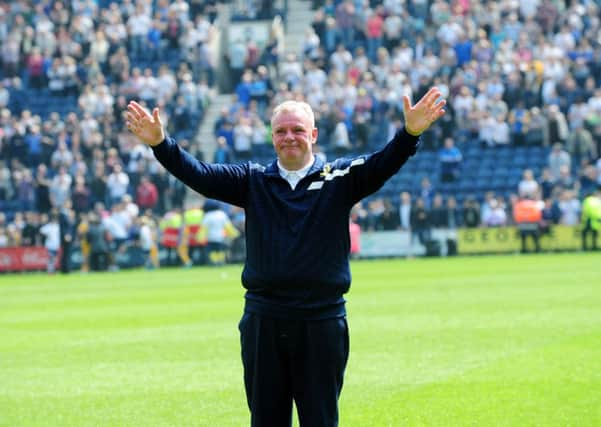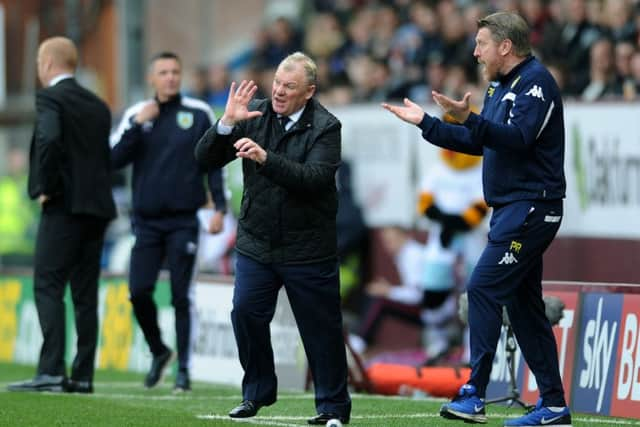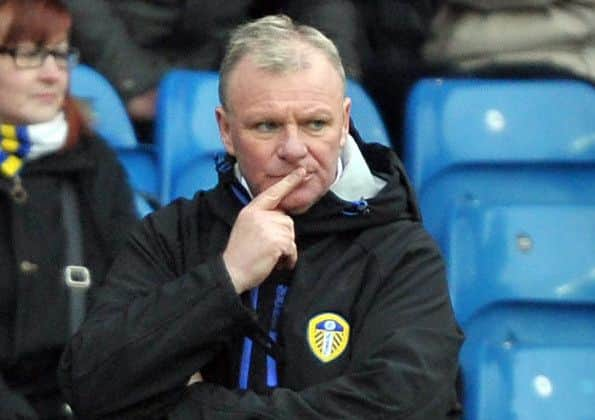Steve Evans exits Leeds United with head rightly held high


Brian McDermott took an 18-month breather from management after becoming Massimo Cellino’s first victim. David Hockaday coached Kidderminster Harriers for 13 games but is back to building youth academies in his own image. Darko Milanic spent almost two years on gardening leave and Uwe Rosler, sacked last October, is still out of work and still on United’s payroll. Neil Redfearn survived at Rotherham United for less than a third of this season.
In light of that, and in spite of his demise, Steve Evans has fared rather well. He goes out of Leeds looking trimmer and healthier, a few stones lighter after weeks on a health kick, and with a heavier reputation than he held when he took charge.
Advertisement
Hide AdAdvertisement
Hide AdPopular managers find Leeds difficult to handle and Evans came to Elland Road without the popular vote behind him. This “motherf*****”, as Cellino chose to describe him on day one, found a way into the fold; a way into what Evans liked to call the “Leeds United family.”


He expects to receive other job offers this summer and doubtless he will; not from Celtic - the dream ticket for every second Glaswegian - and perhaps not from certain other clubs linked to him but from good sides in the Football League. Peterborough United, where Evans has friends at a high level, might have proved be a good fit so close to his family home but he can be confident of rolling up somewhere. Leeds on his CV should do more for him than some of his predecessors.
He said on the final day of the season that he was “not one of these coaches who goes away, goes to court or speaks ill of this club” and he is likely to hold to that. On one hand, Evans had no contract to speak of, ending as it did on June 30, and no grounds for the sort of legal action which ex-employees have legitimately taken. But on the other he is as well-placed as any recent boss to draw a line and move on without dwelling on grievances.
A verdict on his performance (38 games, 14 wins, 12 defeats) depends on context. Leeds were no more a play-off team under Evans than they were at the start of the season but his signings numbered three, one of them permanent, and the club’s reluctance to twist in the January transfer window was tacit acceptance of a campaign free-wheeling towards mid-table. From December onwards, Leeds were nowhere near the bottom three either.
Advertisement
Hide AdAdvertisement
Hide AdIt was comfortable under Evans, in control almost, with the exception of a few nasty defeats. Much of the tension came from doubts about his own job and the inevitable questions the uncertainty posed.


The two weaknesses he inherited - a shortage of goals and defensive ineptitude, particularly at centre-back - did not go away, despite Liam Bridcutt bringing bite to the midfield, and those flies were in the ointment against Preston, aptly summed up by Scott Wootton’s blunder. But Leeds were spirited under Evans. Their players were playing for him, or playing for something, even as injury-time came and the summer beckoned at Deepdale. That is not in itself indicative of Evans’ ability to build or sustain a top-six team but it was one of the reasons why a full away end gave him their approval.
In Cellino’s eyes, Evans has served a purpose by keeping relegation at arm’s length and giving United’s owner the breathing space of another summer and another season in the Championship. Had this season gone off the rails after Rosler’s exit, Cellino’s problems would have been tenfold and the strain on him more intense. But a 4-0 hammering at Brighton in February started the countdown for Evans.
Cellino’s comments afterwards, so familiar when his head coaches are on dodgy ground, started the countdown. By the first week of May even the optimist in Evans had come to accept that his time was up.
Advertisement
Hide AdAdvertisement
Hide AdEvans says his relationship with Cellino has been solid enough and crossed words between the pair have been relatively few but Cellino disliked the Scot’s out-there style; disliked the fact that Evans talked “too much”, no matter the effort the Scot made to defend Cellino.


A background check would have told the Italian that Evans operates that way. There is rarely a question he won’t answer. There was never a press conference which failed to elicit a notable soundbite. But there were occasions when he went too far or tied himself in knots, as he did on the issue of new deals for Charlie Taylor, Alex Mowatt and Lewis Cook. “Maybe I’d have liked it to be true,” Evans said, explaining why he had claimed contract talks were in progress when in fact there were none.
Week after week, he gave the impression of someone who was thrilled to be in his job. Thrilled to be in it, reluctant to lose it recklessly and determined to be as good-humoured as possible. In the final throes he was more upbeat than Redfearn and nothing like the beaten figure McDermott cut. The reason for the change of tone at Preston, the tears, the slumped shoulders, the defeatist comments, must have been the realisation that for him it was over. No more games, no more work. All of a sudden the end was unavoidable.
Cellino clearly favoured a change but then Cellino always seems to. There are players, too, who will warm to an alternative coach more than they warmed to Evans’ full-frontal nature. He was willing to be critical and point the finger, occasionally to the verge of throwing players under a bus. Jordan Botaka was the best example, hung out to dry after Leeds’ FA Cup defeat at Watford, but it was notable still that when Evans crossed swords with Giuseppe Bellusci before last month’s game at Hull City, he had the nerve to confront the defender’s indiscipline and drop him from his squad.
Advertisement
Hide AdAdvertisement
Hide AdEvans’ approach can be summed up by a phrase he repeats to many of his prospective recruits: “If you can’t take a bollocking, don’t sign for me.” Again, there are plenty of people in the game who would have told Cellino that in advance. There is ample evidence. Watch the video of the Crawley Town players Evans left behind in 2012. Read the words of Ben Smith, the ‘journeyman’ footballer who was in his shadow at Broadfield.


Hard but fair, Evans would call himself, and his tenure with Leeds can be seen that way: difficult, exacting but more than good enough for him to leave with his reputation as a manager enhanced. After their meeting on April 29, Evans thought Cellino would offer him a new deal. He thought Cellino had decided to offer him a new deal. But the days passed, the jungle drums changed their tune and Cellino moved on. As Evans does the same, he can think back to his first press conference, the plea for acceptance he made that day, and tell himself that in the arena of public opinion, he won.